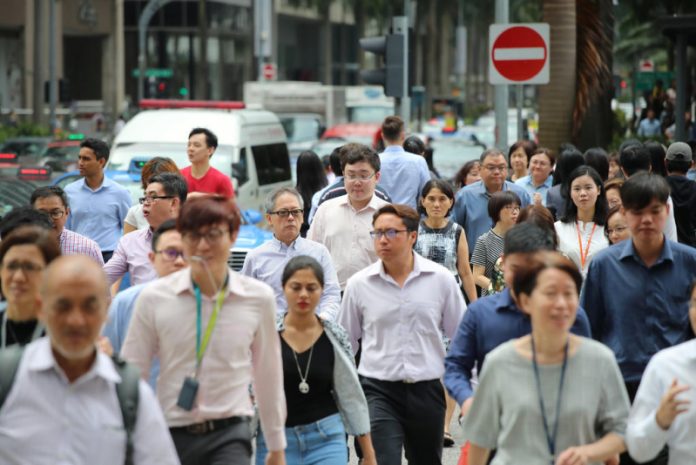More than eight in 10 Singapore employers still intend to hand out bonuses of at least a month’s salary, according to the latest survey even as a weaker hiring climate indicates in 2024.
However, the 84% posted by 525 employers polled in the latest quarterly employment outlook survey from recruitment firm ManpowerGroup Singapore released on Dec 12 marks a minor drop from 87% a year ago.
Employers in the finance and real estate sector are most likely to issue larger average bonuses of over 1½ months’ salary, with 11% indicating plans to do so, compared with an average of under seven per cent for the eight other sectors covered in the survey.
The transport, logistics and automotive sectors topped the list when it comes to giving average bonuses of at least one month’s salary, with 97% of employers in the sector indicating plans to do so.
Following closely behind was the energy and utilities sector, with 96% planning average bonuses of at least one month’s salary, while 91% of employers in the healthcare and life sciences sector intend to do so.
Generally, larger firms are more likely to issue larger average bonuses of over one month’s salary.
A total of 43% of very large firms employing between 1,000 and 4,999 people, and 44% of large enterprises with 5,000 or more staff, said they intend to issue average bonuses of more than one month’s salary.
In contrast, only 20% of small firms employing 10 to 49 people, and 31% of medium-sized firms employing 50 to 249 people, plan to do so.
However, micro firms that employ fewer than 10 people bucked the trend, with 32% planning on average bonuses of more than a month’s salary.
More than half the companies surveyed plan to increase salaries by three per cent to under five per cent, down slightly from the 60% a year ago.
Yet, the proportion of employers planning to raise salaries by five per cent to under seven per cent rose to 19%, from 17% one year ago.
The energy and utilities, and healthcare and life sciences sectors are expected to give the most increments, the survey also found.
Energy and utilities are the only sectors in which all employers polled signalled plans to give average wage increments of at least three per cent.
An average increment of under three per cent is on the cards for 37% of employers in communication services – the highest proportion of all nine sectors in the survey, which was conducted in October.
Communication services encompass telecommunications, media, publishing and entertainment, among others.
“Despite lacklustre economic conditions, many companies continue to award bonuses to reward employees for their contributions for the year,” said Linda Teo, country manager at ManpowerGroup Singapore.
“Given the GST (goods and services tax) hike and escalating costs of living, companies are also awarding bonuses and increasing compensation as a strategy to maintain competitiveness in talent retention and attraction,” she said.
The survey also polled employers on their hiring plans in the quarter ahead, which is the first quarter of 2024.
The net employment outlook for the period is 29%, down four percentage points from 33% for the same period in 2023.
Net employment outlook is a measure of hiring optimism, defined as the percentage of companies surveyed that intend to take on new staff minus the percentage that intend to downsize.
For the first quarter of 2024, 44% of employers polled expected headcount to grow, 15% anticipated a decrease and 39% cent reported no plans to change their headcount.
Singapore civil servants to receive a 0.6-month year-end bonus
The transport, logistics and automotive sector reported the strongest outlook for the second consecutive quarter, at 44%, with communication services close behind at 43%.
ManpowerGroup Singapore said in a statement that the optimism in the transport, logistics and automotive sector stems from strong demand for airline travel and logistics services.
Even though the net employment outlook in the sector is down 14% points from a quarter ago, it is up 13% points year on year.
Conversely, the energy and utilities sector was more circumspect, with a positive outlook of only 11%. Consumer goods and services fared not much better, posting 12%.
The survey also found that skills related to environmental, social and corporate governance, as well as the green economy, are in high demand, with 42% of employers citing difficulties in hiring those with such skills.






















